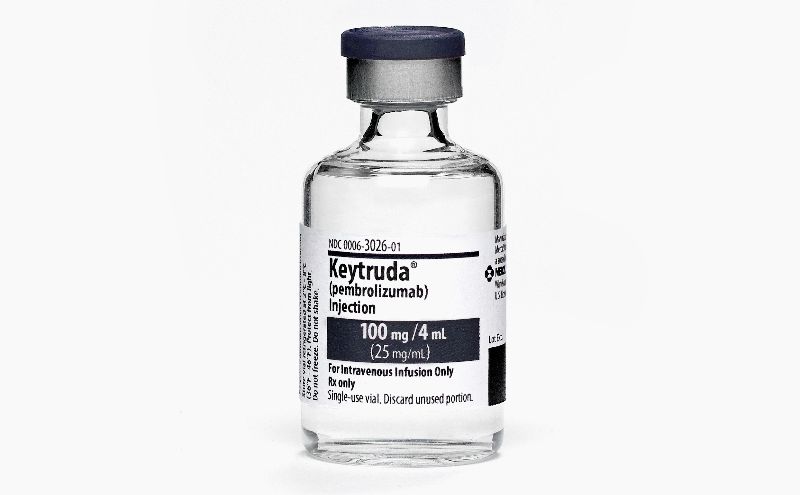
Merck’s Keytruda has improved progression-free survival (PFS) in relapsed or refractory classical Hodgkin lymphoma (cHL) patients involved in Phase III KEYNOTE-204 clinical trial.
PFS is one of the trial’s primary endpoints, and an interim analysis showed that Merck’s drug led to a statistically significant and clinically meaningful improvement on the measure when compared to brentuximab vedotin (BV).

Discover B2B Marketing That Performs
Combine business intelligence and editorial excellence to reach engaged professionals across 36 leading media platforms.
KEYNOTE-204 is a randomised, open-label trial performed to assess Keytruda as a monotherapy in a total of 304 patients aged 18 years and above.
The study will continue to assess the second primary endpoint of overall survival (OS). Secondary endpoints include objective response rate (ORR) and complete remission rate (CRR), as well as safety.
According to results, Keytruda’s safety profile was consistent with prior data, without any new safety signals.
Merck Research Laboratories oncology clinical research vice-president Dr Jonathan Cheng said: “Patients with classical Hodgkin lymphoma are generally young and when they do not achieve remission following standard treatment, their cancer is challenging to treat.

US Tariffs are shifting - will you react or anticipate?
Don’t let policy changes catch you off guard. Stay proactive with real-time data and expert analysis.
By GlobalData“These pivotal Phase III data indicate a statistically significant and clinically meaningful improvement in progression-free survival with Keytruda compared, in head to head fashion, with the currently approved therapy of brentuximab vedotin.
“These data are strongly supportive of Keytruda’s current indication in cHL and we plan to file these data with regulatory authorities as quickly as is possible.”
Keytruda received the US Food and Drug Administration (FDA) approval in March 2017 to treat adult and paediatric refractory cHL patients, or those with relapse after three or more lines of previous therapy.
The approval supports a collection of data from the Phase II KEYNOTE-087 trial, and the KEYNOTE-204 test is a confirming study for current indication in cHL.
In January, Merck reported that the Phase III KEYNOTE-604 trial of the drug demonstrated mixed results fulfilling one of its dual primary endpoints.





